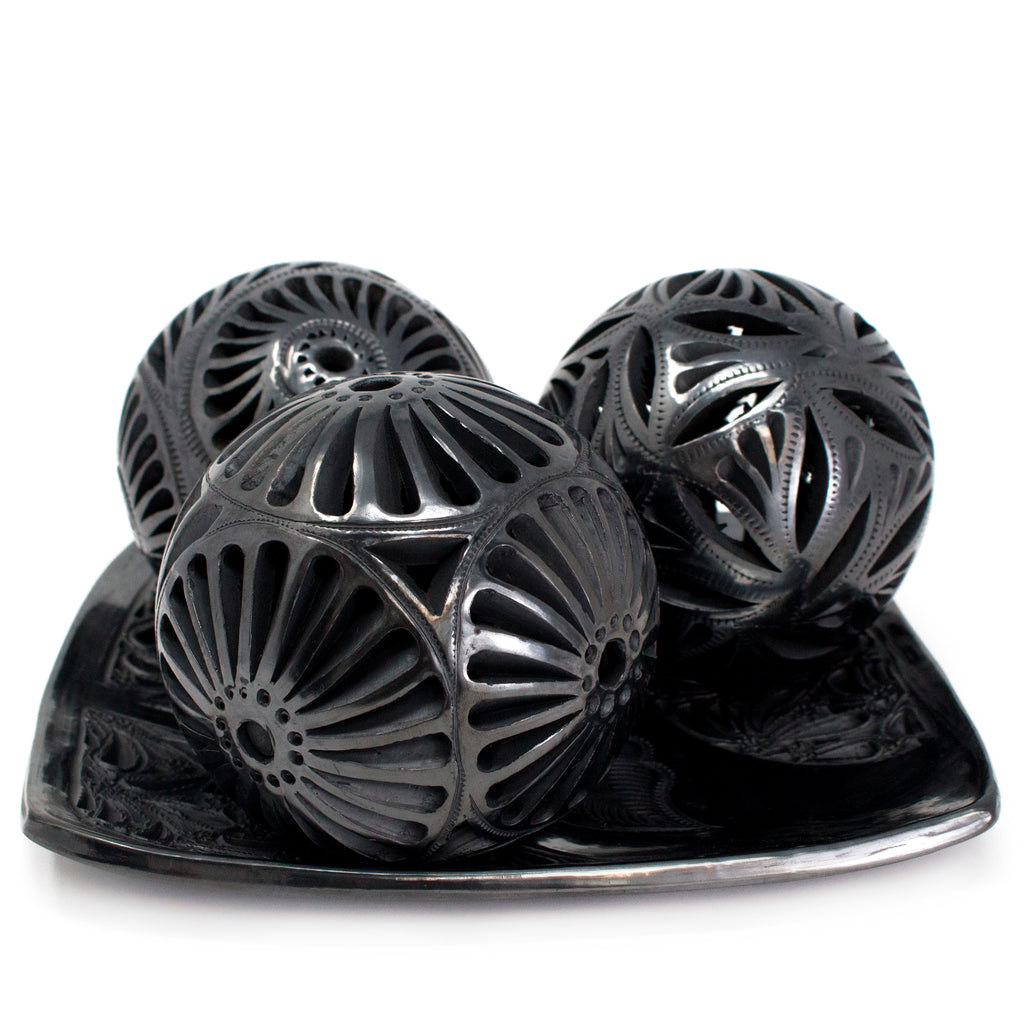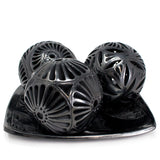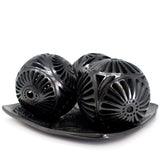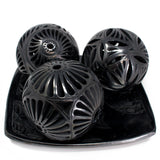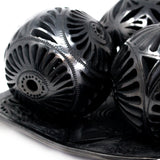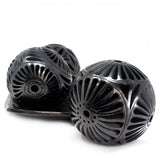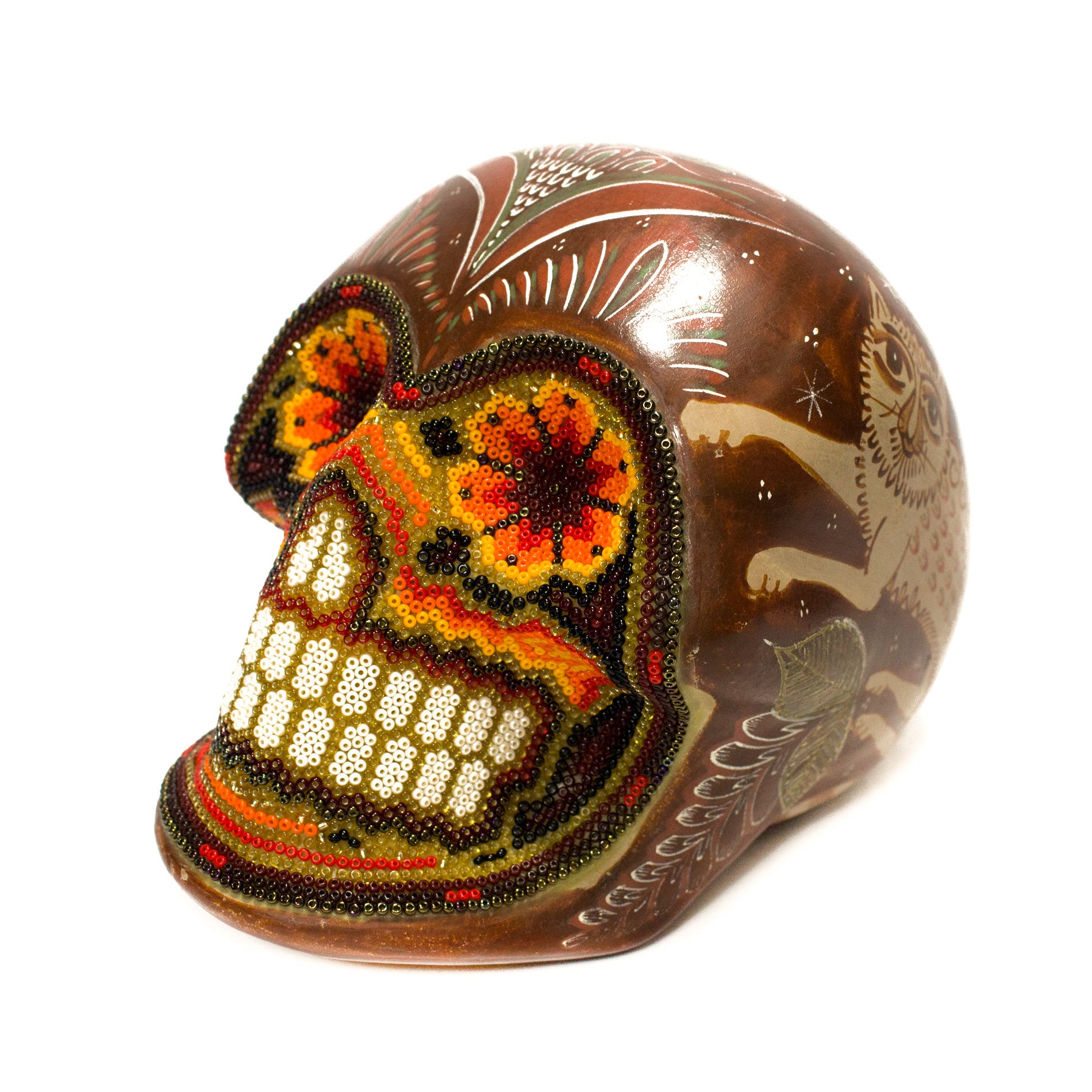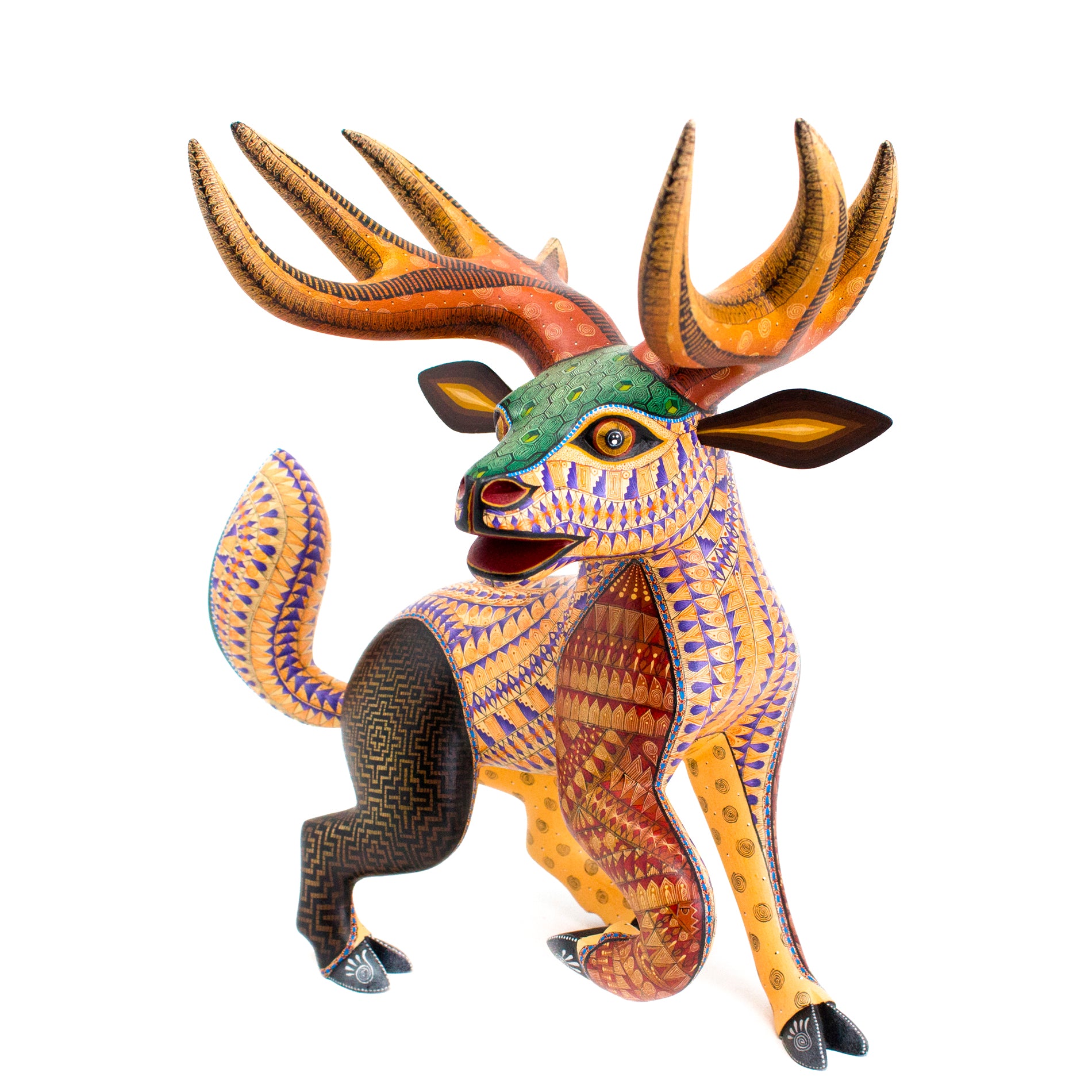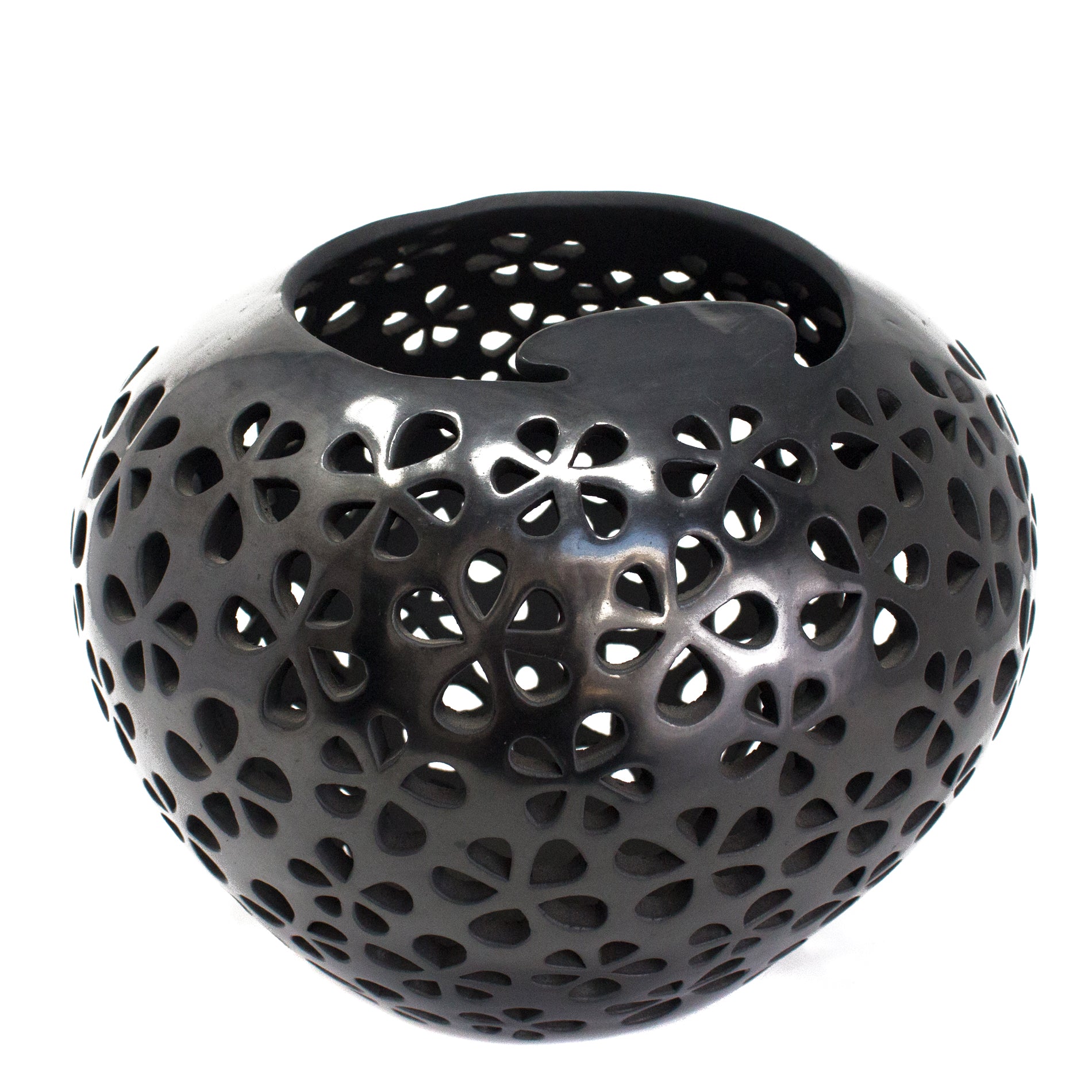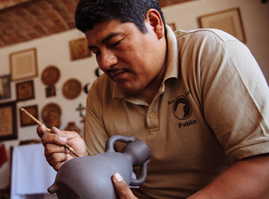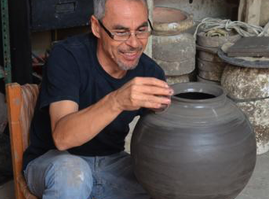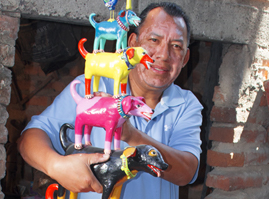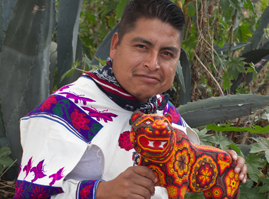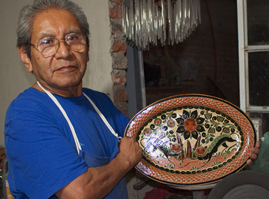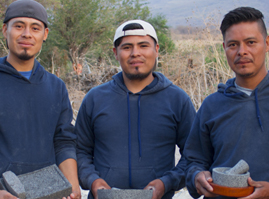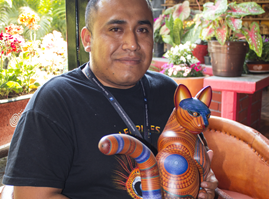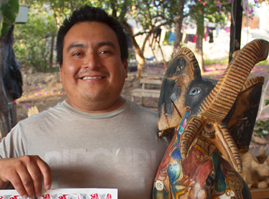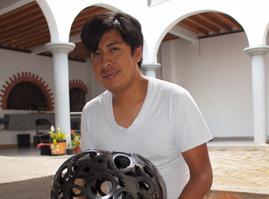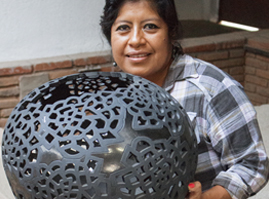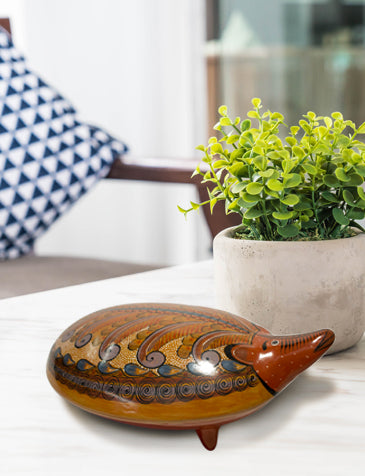Three Pierced Spheres Tray, Oaxaca Black Clay
- Sold By: ADELAIDA FABIAN CANSECO
- Type: BLACK CLAY
The perfect centerpiece for any table you want to host long and memorable conversations on, these three meticulously pierced spheres and their base are both a perfect accent and subject for any decoration. Carefully hand-sculpted and crafted with traditional Oaxaca Black Clay Techniques by Master Artisan Adelaida Fabian Canseco, her pieces are worthy of the spotlight in any collection.
Details:
This piece is currently not in stock. Once your order is processed, the artisan will receive an order to produce a replica of the item you ordered. Given the handcrafted and artistic nature of their pieces, your purchase may have some variation in shape. It is these same variations that make every item unique.
Elaboration times range from 30-40 days.
Measurements:
4.72" high x 8.66" wide x 8.66" long
Weight:
2.98 lbs
Since pre-Columbian times, clay has been considered a highly precious material by Mexicans who use it for the elaboration of utilitarian, decorative, or ritual use pieces, a raw material worked with much mastery and technique diversity, as well as finishes.
In the past, Zapotecos and Mixtecos had their settlements in the middle of Oaxaca’s valleys, even back then, they worked with Black Clay, but it was until the 50s that the technique came back into the spotlight, all through the work of Doña Rosa Real de Nieto, an artisan from San Bartolo Coyotepec, who elaborated beautiful artistic pieces that have now given fame and recognition to Oaxaca on a worldwide scale, and that for many years promoted and impulsed this technique.
The clay is extracted from a place near to the town, and contrary to what most people believe, it isn’t initially black. This characteristic tone is obtained through a specific technique applied during the clay’s firing, which is done in a two mouthed furnace (a firewood furnace dug underground), during some point in the process, both “mouths” are closed, which triggers a physical reaction that reduces atmospheres, which is contrary to the regular oxidation of firing the piece. This firing process dates as long back as Prehispanic times. It is believed that, if clay is collected by women, the mines could stop naturally producing the material, therefor this is an activity traditionally exclusive to men.
Producing the pieces starts with the clay’s collection, which is sifted and is then “laid to rest”, before it is kneaded and molded. Once the artisan has applied his magic to sculpting and molding the piece, it is left to dry under the sunlight for around four days. In the case the piece requires some form of fretwork, it is done on the fourth day for the piece not to be too fresh or too dry, which could make the process difficult.
As time has passed, pieces are scratched in order to close the pores in the clay, and they are left to dry once again for them to be rubbed with quartz stones, which give the piece a very particular shimmer. Pieces are then taken out to be dried again, either under direct sunlight or under a shed for indirect light, and once dried, the quartz rubbing takes place again, all before letting the piece dry one last time for another four days before firing it. Once fired, pieces are washed, dried and ready to be sold. Among the pieces produced, one can find skulls, cajetes, jugs, pots, Mezcal pots, animal figures, and diverse ornament figures, as well as the famous “Carlomagno” pieces, all staying close to traditional techniques.
 Originally from Mexico City, Adelaida was brought to San Bartolo at a very young age, and was introduced to the Arts by some of her family members during her childhood, all because she was very curious about the artwork and the techniques used to achieve them. It was then that her father became her first formal arts teacher. Through the years, she learned several techniques, all while developing key skills that later became a staple of her work with black clay art. Now, being 40 years old and having learned and created beautiful art for almost as many, Adelaida’s work is renown by the meticulousness with which pieces get their details, carvings and burnished highlights, each one of her pieces is a testament of an Artisan legacy that inspires like few others.
Originally from Mexico City, Adelaida was brought to San Bartolo at a very young age, and was introduced to the Arts by some of her family members during her childhood, all because she was very curious about the artwork and the techniques used to achieve them. It was then that her father became her first formal arts teacher. Through the years, she learned several techniques, all while developing key skills that later became a staple of her work with black clay art. Now, being 40 years old and having learned and created beautiful art for almost as many, Adelaida’s work is renown by the meticulousness with which pieces get their details, carvings and burnished highlights, each one of her pieces is a testament of an Artisan legacy that inspires like few others.

